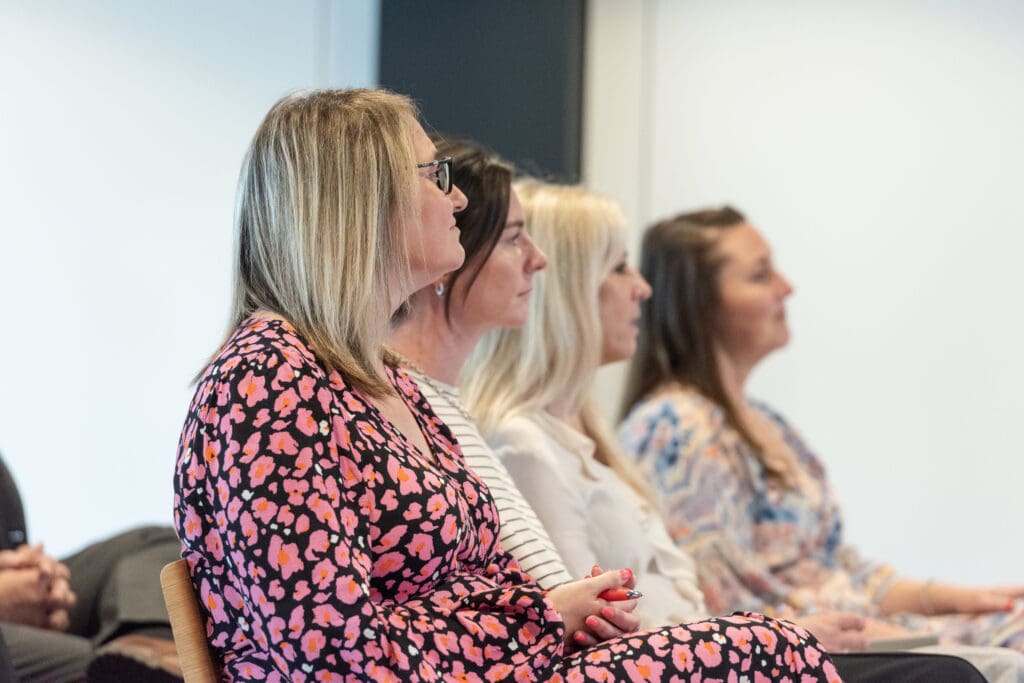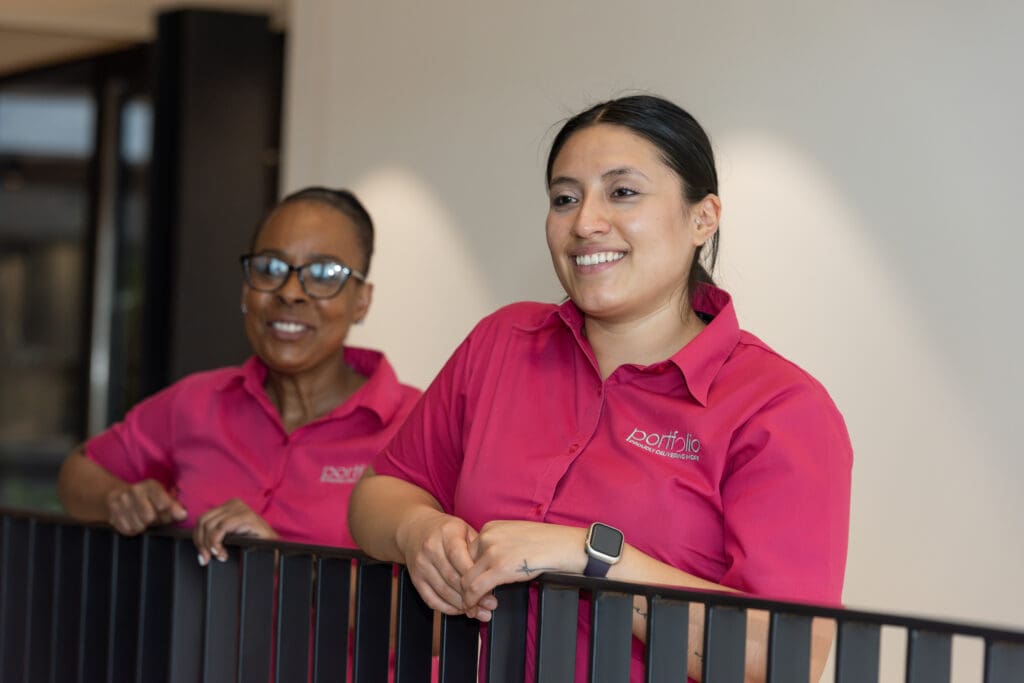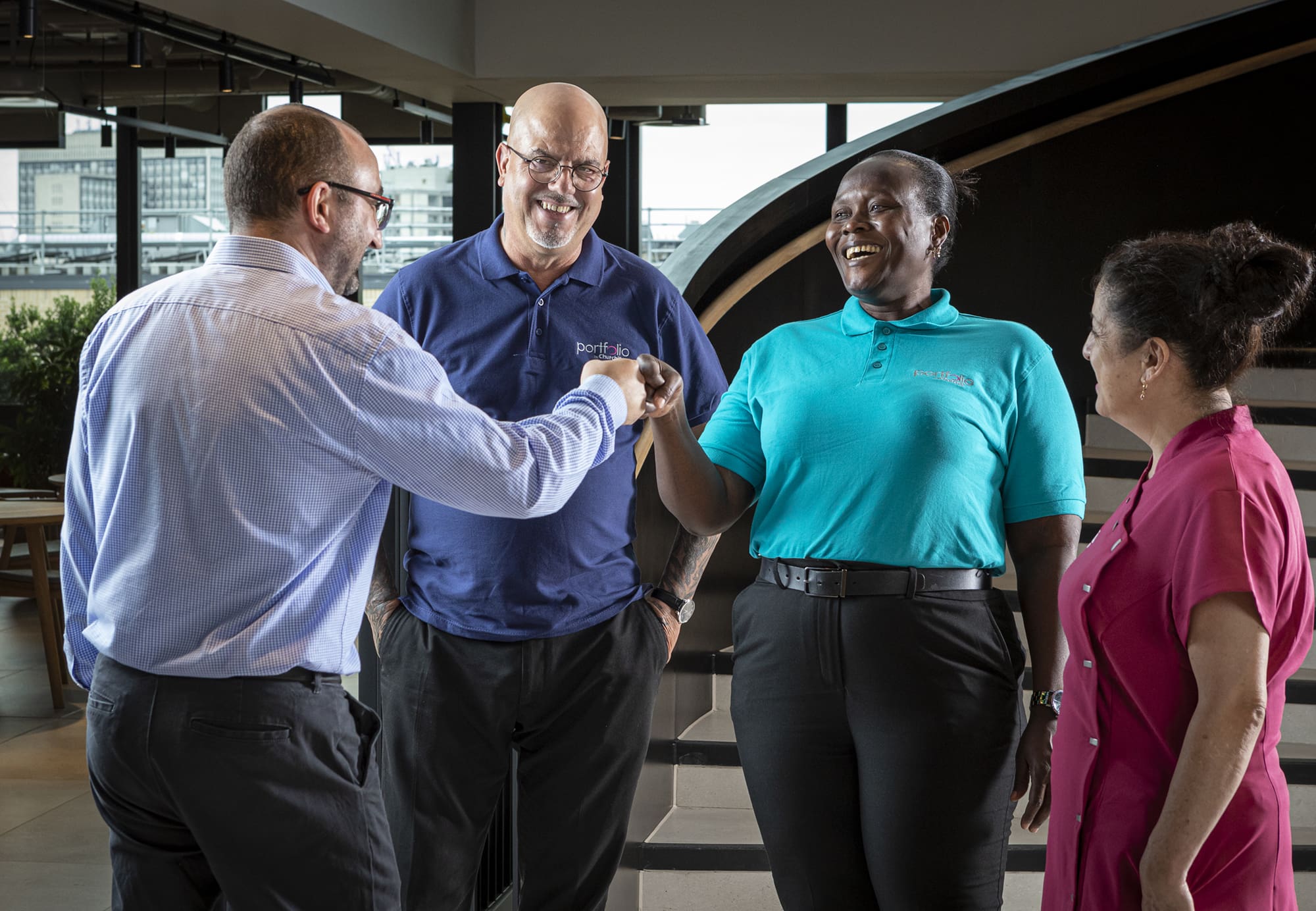On Saturday, March 8th, the world celebrates International Women’s Day. At Churchill Group, over 50 per cent of our colleagues are female, and our biggest female demographic is aged 40 to 45.
During that time, many women begin the natural transition into perimenopause and menopause. That can involve a range of symptoms like hot flushes, brain fog, and sleeplessness. For some, these symptoms are debilitating, and without support, some women choose to leave the workforce altogether.
In all workplaces, there is a direct link between the health and psychological safety of colleagues and the workplace culture, leadership and support systems in place around them. Our duty of care is to make sure there are safe spaces and structures in place so that our leaders are best equipped to support colleagues no matter their struggle – and that includes in areas like menopause.
As we work towards Menopause in the Workplace Accreditation, our team is working with expert organisations and developing stronger internal policies and support systems so that no one in our business suffers alone.
Last year, we held a 2-hour workshop for 20 leaders in the business to raise awareness around menopause. This is not a one-time-only exercise; we are embedding educational sessions like these into the DNA of our organisation so that leaders can take a proactive approach in discussing and advocating for menopause support.

Train-the-trainer advocate workshops
Last year, we developed our Menopause Policy and have created a range of resources to educate our employees on what menopause is and ways to develop support and adjustments for colleagues.
This week, we held two train-the-trainer (TTT) menopause advocate workshops with our accreditation partner. The TTT programme is a structured learning process that equips our managers with the skills and knowledge to effectively support and educate others. It was designed with managers, team leaders, HR and learning and development professionals in mind so they can become subject matter experts on menopause and share their knowledge with others.
The programme has held two sessions so far, led by Sally, the associate trainer who works at Henpicked: Menopause in the Workplace. Henpicked partners with organisations to produce the right training, policies and practices to raise awareness, educate and support colleagues on this critical area.
In the first session, attendees learned what menopause looks and feels like and developed a comprehensive understanding of how it can affect people. In the second session, trainees learned how to deliver menopause awareness sessions themselves. This involved understanding how to provide reasonable adjustments to colleagues to support them in their working day. For example, if someone is experiencing menopause symptoms and informs their line manager, our managers can look at agile support and respond to their symptoms and adjust support accordingly. Symptoms can often change over time and affect their work differently at different times, such as increased fatigue or sleeplessness. That would require new adjustments, such as microbreaks throughout a shift, delayed start times to their shifts or additional work wear items.
Once all trainees have completed the third session, this cohort will be menopause advocates who can educate and empower managers, frontline teams and all colleagues to create a supportive environment for those experiencing menopause. We aim to have 70 per cent of management teams trained by October 2025.
Space to talk
In February, we shared a colleague toolbox talk which discussed policy, practical guidance examples and supportive conversation frameworks for managers. This talk is the first of many that will help embed menopause awareness throughout the company – showing frontline colleagues our internal policy and who they can turn to for support and guidance.
We have also launched a dedicated inbox for all employees. That way, if they are experiencing symptoms and would like some additional support or guidance, they can contact our “menopause and me” email.
We can then work with the colleague and their line manager to develop catered support, whether that be contacting their GP, organising a change in their working arrangement or uniform, or any other support they need.

Looking ahead
The mental health and safety of our colleagues is hugely impacted by the workplace culture we cultivate. At Churchill Group, we don’t take that duty of care lightly, and we want to make sure every person feels best equipped to help and be helped by each other.
That’s why we’re working towards securing Menopause in the Workplace accreditation as one of several ways of ensuring that every colleague is fully supported.



